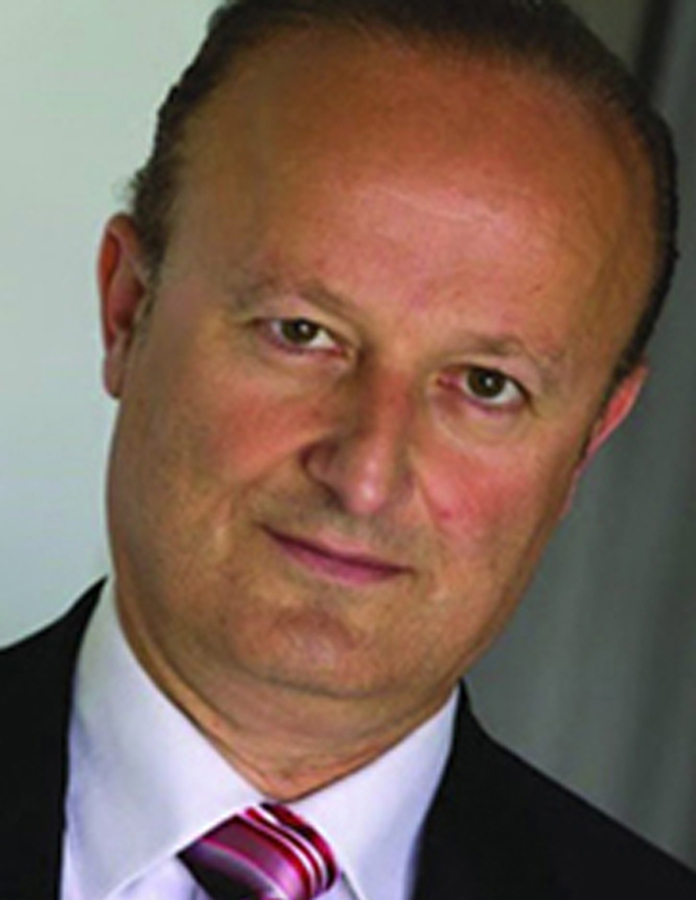

Catholicos Karekin II’s Rep. Arch. Hovnan Derderian Violates the Armenian and American Constitutions
Posted on March. 3. 2019
BY APPO JABARIAN
EXECUTIVE PUBLISHER/MANAGING EDITOR
USA ARMENIAN LIFE MAGAZINE
SEPTEMBER 2015
Last week’s article titled “Arch. Hovnan Derderian Meddles in Armenian Presidential Campaign at Western Diocese” sparked a global debate about whether the Primate of Western Diocese Arch. Derderian had any right to meddle in Armenian presidential campaign.
On August 12, around 250 guests had gathered at Western Diocese’s Kalaydjian Hall for a banquet honoring Mr. Ara Abrahamyan. The main objective of the article was to focus on a troubling issue — the unprecedented use of the Western Diocese, an Armenian religious institution in the United States, to campaign in favor of (or against) a possible candidate for political office.
The article neither endorsed nor opposed Mr. Abrahamyan’s candidacy for Armenia’s upcoming parliamentary elections in May 2017.
Many members in the audience expressed concerns that they were “alerted before the event” that “during the banquet presided by Arch. Derderian, Mr. Ara Abrahamyan of Moscow was going to declare his candidacy for President of Armenia.”
The guests were also troubled by the fact that Arch. Derderian had facilitated — through a third party sponsorship — such an event that was intended for a political endorsement at the Western Diocese.
Opponents of the Armenian Church’s meddling in political competition between candidates in Armenia cited the importance of “Separation of Church and State.”
Proponents argued that the rule doesn’t apply to Armenians. Some of the proponents totally missed or ignored the points raised in the article regarding the gravity of the issue of the Armenian Church taking sides in a political competition for public office.
Some proponents even went further mistakenly equating Rev. Martin Luther King, Jr.’s actions in defense of human rights with Arch. Derderian’s political endorsement of a candidate in Armenia’s upcoming elections.
Yes, Rev. King “spoke publicly against racism and injustice with the authority of Scripture,” but he didn’t endorse anyone for public office.
King never publicly supported a political party or candidate for president. In his autobiography, King says that in 1960 he privately voted for Democratic candidate John F. Kennedy: “I felt that Kennedy would make the best president. I never came out with an endorsement. My father did, but I never made one.”
My article also noted that Arch. Derderian’s actions amounted to “a blatant disregard of separation of church and state in Armenia, the Armenian Diaspora and the United States. ‘Separation of church and state’ (sometimes ‘wall of separation between church and state’) is a phrase used by American Founding Father Thomas Jefferson, whose metaphor of a wall of separation has been cited repeatedly by the U.S. Supreme Court.
According to the United States Constitution, The First Amendment provides and Article VI specifies that ‘no religious Test shall ever be required as a Qualification to any Office or public Trust under the United States.’”
Harout Harry Semerdjian who serves ironically as “Legislative Deputy” to Los Angeles City Council Member Mitch O’Farrell, astonished many members of the community falsely claiming that “the Western notion of this ‘separation’ cannot apply to the Armenian case due to our long history of foreign rule and domination, mass dispersion, and the current challenges of a small reborn state that has inherited a large Diaspora as well as centuries of geopolitical and social challenges.”
In fact, Armenia’s constitution clearly defines “Separation of Church and State.” Article 8.1 of Armenia’s Constitution states: “In the Republic of Armenia, the Church is separate from the State.”
A 2010 report by Policy Forum Armenia cited: “The Armenian Apostolic Church has always understood itself as the wellspring and repository of both Christianity and Armenian Culture for the Armenian people, especially in the Diaspora. … Armenian Church has been the only national institution to have endured in the face of statelessness, migrations, territorial divisions, and oppressive regimes, and has been the guarantor of the nation’s security and survival (Nersoyan, 1996). Today, however, an independent Armenian state exists, with ministries of Culture, Education, Youth Affairs, and now a ministry of the Diaspora.” Therefore it is no longer necessary for the Armenian Church to assume the role of state.
When it comes to internal political competition among two or more Armenian candidates, the Armenian Church officially never gets involved. In the past, if certain clergy misused their official positions and titles in favor of one candidate against others, it doesn’t mean that they did the right thing.
The Armenian Church must remain independent and neutral for many reasons.
For example, in case two or more Armenian presidential candidates escalate their political race to open animosity then the Armenian Church, as a sovereign, independent, self-determined and neutral national institution, can foster reconciliation and help the Armenian nation reestablish internal peace and stability.
But if the Armenian Church takes sides in favor of one candidate against others then it undermines its own independence and neutrality, becoming part of the problem rather than the solution.
In order to avoid the erosion of the Armenian Church’s spiritual authority, church leaders must steer clear of partisanship.
The Armenian Church has always been a catalyst for internal stability and peace and no power should be allowed to undermine it.
